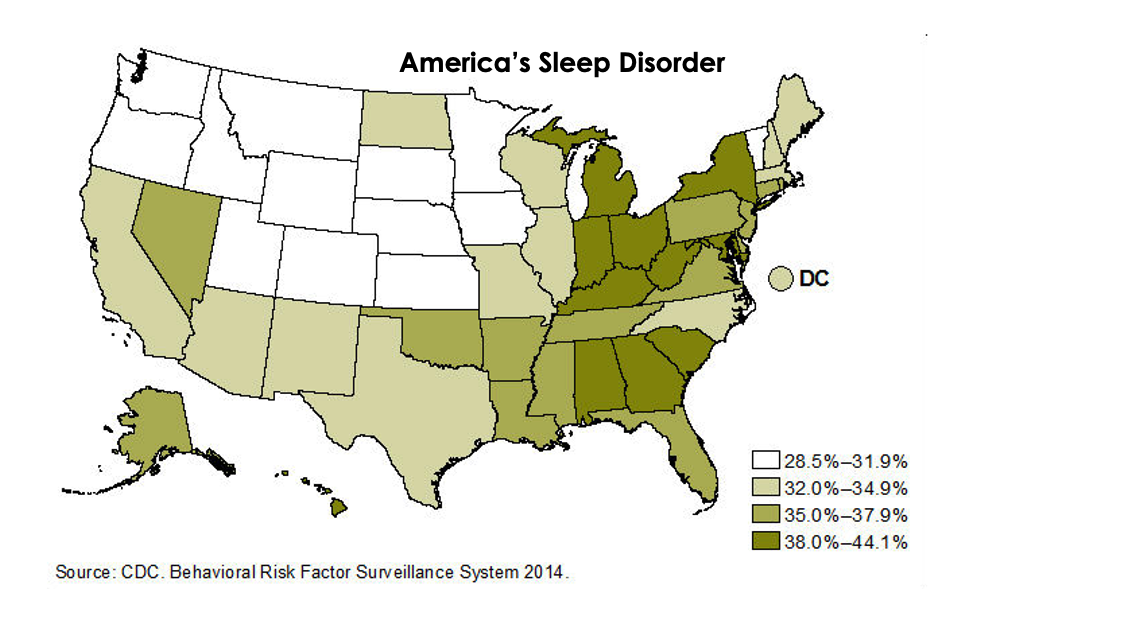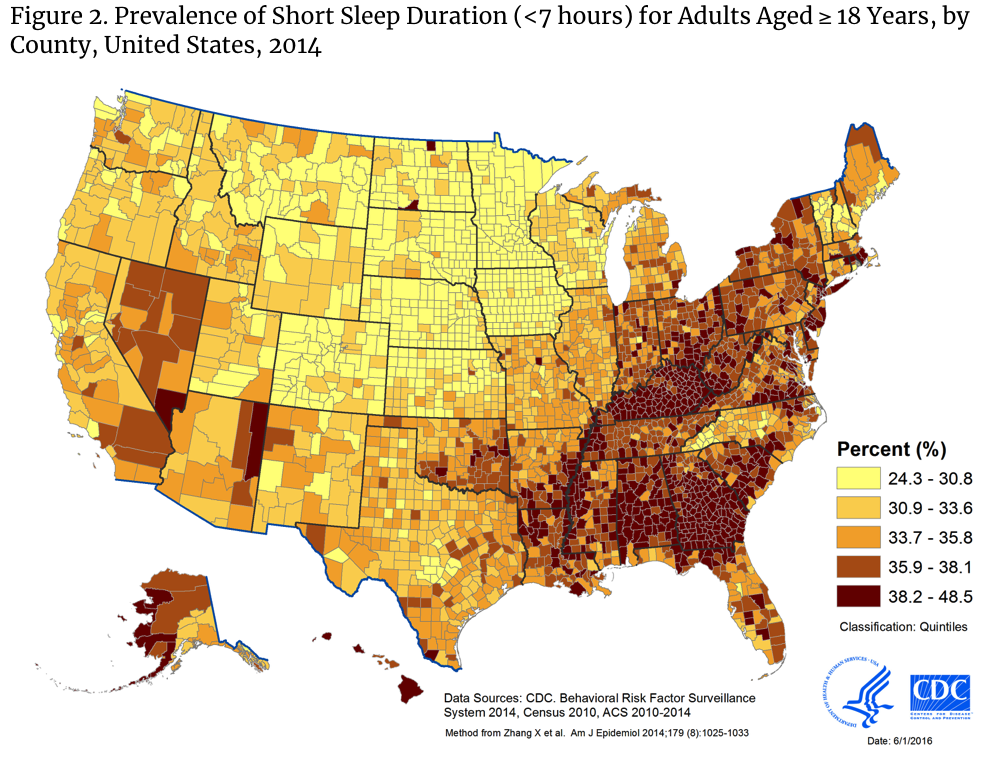
According to the CDC, adults need seven or more hours of sleep per night for the best health and wellbeing.1 They define short sleep duration as less than 7 hours of sleep per 24-hour period.
The CDC actually studied the geography of sleep patterns to show the age-adjusted percentage of adults who reported sleeping less than 7 hours within a 24-hour period. The percentage varies considerably by state, with states like Colorado, South Dakota, and Minnesota coming in at <30% in while states like Kentucky and Hawaii were on the opposite end at ≥40%.
 Sleep and Workforce Productivity
Sleep and Workforce Productivity
There is sufficient clinical data to correlate the impact of sleeplessness to workforce productivity, and Covid-19 has had both a direct, and an indirect, impact on people’s ability to get quality sleep.
In the early days of Covid, the Department of Psychiatry and Behavioral Health at Stanford Medical school hosted a Q&A on the topic.
In this Q&A Dr. Rachel Mander, Professor of Psychiatry and Behavioral Health at Stanford wrote, “The two main contributors to potential worsening of sleep are changes in stress levels and changes in sleep behaviors. The pandemic and related shelter in place measures to mitigate its spread have increased stress levels among many. People may worry not only about the disease itself; other health issues might not be optimally addressed—financial issues, as well as other psychological and interpersonal stressors."
So, it's not surprising that Covid had folks losing sleep, but a year later, with much of the worst behind us—and a phenomenal job market to boot—is it somewhat shocking to see that people are still not sleeping?
Surprisingly no. As Dr. Mander wrote, “sleep difficulties that emerged during the pandemic can develop into one of… two sleep disorders…insomnia disorder and circadian rhythm sleep-wake disorders.”
What Can You Do to Support Your Team?
If you’re looking for some fast tips and advice to share with your team, check out the latest from our team at The Upside. And if your HR budget includes funds to support employee wellness, this article also has a shopping list of items that are available to help with a good night sleep.
Tools and tricks listed in the article include:
- Light-Blocking Shades
- Eye Mask
- White Noise Machine
- Weighted Blanket
- Lavender Oil
- Huggable Body Pillow
- Cooling Sheets
- Fading Sleep Light
Get all the details at The Upside.
